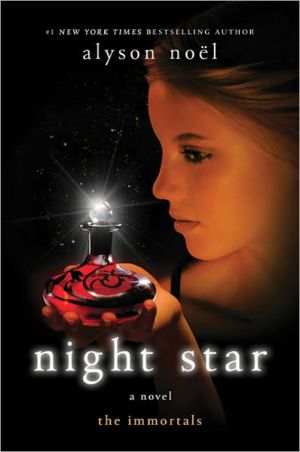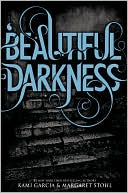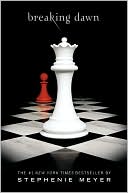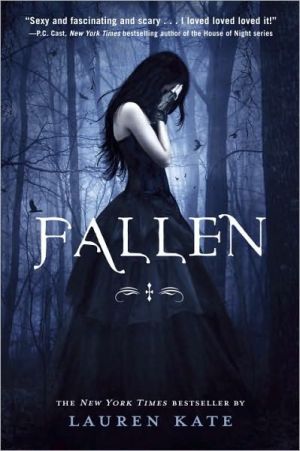Almost Perfect
You only hurt the ones you love.\ Logan Witherspoon recently discovered that his girlfriend of three years cheated on him. But things start to look up when a new student breezes through the halls of his small-town high school. Sage Hendricks befriends Logan at a time when he no longer trusts or believes in people. Sage has been homeschooled for a number of years and her parents have forbidden her to date anyone, but she won’t tell Logan why. One day, Logan acts on his growing feelings for...
Search in google:
You only hurt the ones you love.Logan Witherspoon recently discovered that his girlfriend of three years cheated on him. But things start to look up when a new student breezes through the halls of his small-town high school. Sage Hendricks befriends Logan at a time when he no longer trusts or believes in people. Sage has been homeschooled for a number of years and her parents have forbidden her to date anyone, but she won’t tell Logan why. One day, Logan acts on his growing feelings for Sage. Moments later, he wishes he never had. Sage finally discloses her big secret: she’s actually a boy. Enraged, frightened, and feeling betrayed, Logan lashes out at Sage and disowns her. But once Logan comes to terms with what happened, he reaches out to Sage in an attempt to understand her situation. But Logan has no idea how rocky the road back to friendship will be.Children's LiteratureLogan is having a hard time with the end of his long relationship with Brenda. But when a quirky new girl walks into Logan's biology lab, he takes notice. It is obvious to his friend, Tim, that the new girl has noticed Logan, too, since "[t]hat new tall, crazy, and yes, cute girl had been flirting with him." So, why not ask Sage out? After all, "[o]ne date would be fun." Becoming Sage's friend has problems, though.— While a senior in high school, she is not allowed to date. Still, over time, the two develop a friendship and more. They kiss "[f]or ten wonderful seconds . [and] the world vanished." Then, Sage shares an awful truth with Logan, "the reason [she] can't date...the reason [they] can't kiss...the reason why [she] was home-schooled." Sage is a boy! Rage, disgust and fear make Logan lash out at Sage, saying "Just stay the hell away from me. I don't ever want to see you again, faggot." Curiously, he finds himself remembering her at odd times and, in the end, reaches out in an attempt to understand the agonizing situation of a young man who has always thought of himself as a girl. In doing so, Logan will come to better understand himself as well. This is a sensitive look at two young men's struggle with their sexuality. The author addresses homophobia, hate crimes and gender/transgender identity issues with compassion and understanding. This would be an excellent addition to any collection of books about alternative sexuality. Highly recommended. Reviewer: Anita Barnes Lowen
chapter one\ I’m not sure what I loved most about being on the track team. Maybe it was the crippling shin splints. Or constantly feeling like I’d just smoked three packs of cigarettes. Maybe it was the empty stands at every meet, or the way the results got buried in the local sports section.\ The football field was by far the best feature of Boyer, Missouri. My hometown, which barely boasted two thousand people, pumped nearly every tax dollar they could into maintaining the facility. The city of Boyer was little more than a half-dozen trailer parks, an electronics factory, and five churches, but the football field was always pristine. The maintenance staff mowed the grass twice a week and watered it every day in the summer. The bleachers gleamed, the locker rooms sparkled, and the scoreboard towered like some great pagan idol. The crumbling structure of Boyer High School stood across the parking lot, almost as an afterthought.\ Us track poseurs were permitted to run the perimeter of the sacred field, but only when the football heroes had no use for it. During the fall we had to run laps in the parking lot while the Boyer Bears practiced. One time we were run off by the marching band, which gives you an idea of where we stood in the school food chain.\ It was mid-November. My friend Jack Seversen and I had managed to squeeze in some after-school running, trying to stay in shape for the winter. The cold wind chilled my sweat-soaked body, making me shiver and swelter at the same time. Exhausted and thirsty, I walked a final lap to avoid muscle cramps, then limped toward the watercooler.\ “You suck, Logan!” shouted Jack, jogging up behind me. Even though he’d run as much as I had, he was still vibrating with raw energy. Thin as a whip and gangly, Jack reminded me of a broken fan belt, wildly flailing in no particular direction. Track wasn’t a sport for him; it was merely an excuse to move.\ “Hey, check it out.” He jabbed his bony, spastic hand toward the football field. The Boyer cheerleaders were wrapping up their practice. I’d heard that in bigger towns, only the pretty, graceful girls made the squads. In Boyer, with a student body of about two hundred, the only membership requirement was a majority of intact limbs and the ability to bend at the waist.\ Jack and I reached the water table. I chugged a couple of cups, while my friend, in spite of the low temperature, dumped his over his head. He shook like a wet dog. Eventually, he managed to focus on me. Even then, his protruding brown eyes spun in their orbits like a weather vane in March. Jack had that intense mania common in serial killers and car salesmen.\ “You should go talk to Tanya. She likes you.”\ Without meaning to, I glanced over at the squad. I could just make out Tanya’s form as she did jumping jacks with the others.\ “It’s a wonder she doesn’t knock herself out,” I muttered. In elementary school (in Boyer, you knew all your classmates since kindergarten), Tanya had been the fat girl. Then, in eighth grade, most of her body mass had migrated into her chest. She wasn’t exactly bikini material, but she did have a couple of good points.\ “C’mon, Logan. Don’t tell me you wouldn’t like to press your face into her chest and make motorboat noises.”\ I stifled a laugh. “Piss off, Jack.”\ I walked over to the bleachers and grabbed my bag from next to my old bike. Jack followed me, almost uncomfortably closely, and then suddenly grabbed my shoulder.\ “Dude, it’s time to get back in the game.”\ I yanked away. “Drop it, okay?”\ He didn’t drop it. “You’re a senior, Logan. In May, we leave this place forever. Don’t spend your last semester moping about your ex-girlfriend.”\ I stormed into the gymnasium, a blocky building that we shared with the middle school next door. I made sure I was alone in the locker room. Then I drove my fist into a metal door. The sound echoed through the empty room. Pain radiated through my wrist and shoulder.\ Jack thought he was being helpful. He thought Brenda had just been another girl. For the past month, he’d been trying to fix me up. To him, all I needed to do was make out with some random chick and I’d forget about how Brenda had dumped me.\ To be quite honest, she never actually dumped me. It was her decision to sleep with another guy that had put the strain on our three-year relationship.\ I quickly stripped down and hopped in the shower. As the stall steamed up, I thought about Brenda. The homecoming dance in early October. I’d sold my baseball card collection just to pay for her corsage and had to drive to nearby Columbia to rent my tuxedo.\ I paused, midlather, remembering that night. My tux hadn’t fit exactly right; my arms were too long and my chest too broad. With my advanced hairline and jutting forehead, I’d thought I resembled a shaved ape. Even with my mom’s help, I looked like some Mafia don’s bodyguard; a muscle-bound lummox, washed and dressed for a night out with sophisticated people.\ Brenda had told me I looked suave, like a James Bond supervillain. She’d said I had the face of an angel and the body of a god. I found out later she didn’t always tell the truth.\ Brenda had been dolled up like someone you’d see on a movie poster. Her long black hair had been styled at the local salon. She’d worn blush on her high cheekbones and had left her glasses at home, even though that meant she was almost blind. Her dark blue dress had exposed her smooth shoulders. As I strapped the corsage onto her delicate wrist, I’d felt a sting of electricity shoot through my arm, down my legs, and out the heels of my rented shoes. Of the dozens and dozens of guys in Boyer, Brenda had chosen me. If I’d won a million dollars in the lottery the next day, I’d have called the money the other good thing that happened that week.\ After the dance, I’d driven her in my mom’s car to the empty field out by the water tower. I don’t think I’d ever been that nervous. I wanted everything to be perfect. I had a blanket in the trunk and her favorite songs in the CD player. I had driven all the way out to Moberly to buy condoms.\ We’d kissed for about two minutes. Then Brenda had asked me to drive her home. I could still remember the little speech she gave me as we pulled into her driveway at eleven p.m.\ Logan, I’m just not ready for that. Could we wait a little longer? Please? Think about how special it will be.\ As I turned off the shower and wrapped a towel tightly around my waist, I wondered how special it had been for Brenda. I just wished I could have been there.
\ Children's Literature\ - Anita Barnes Lowen\ Logan is having a hard time with the end of his long relationship with Brenda. But when a quirky new girl walks into Logan's biology lab, he takes notice. It is obvious to his friend, Tim, that the new girl has noticed Logan, too, since "[t]hat new tall, crazy, and yes, cute girl had been flirting with him." So, why not ask Sage out? After all, "[o]ne date … would be fun." Becoming Sage's friend has problems, though.— While a senior in high school, she is not allowed to date. Still, over time, the two develop a friendship and more. They kiss "[f]or ten wonderful seconds …. [and] the world vanished." Then, Sage shares an awful truth with Logan, "the reason [she] can't date...the reason [they] can't kiss...the reason why [she] was home-schooled." Sage is a boy! Rage, disgust and fear make Logan lash out at Sage, saying "Just stay the hell away from me. I don't ever want to see you again, faggot." Curiously, he finds himself remembering her at odd times and, in the end, reaches out in an attempt to understand the agonizing situation of a young man who has always thought of himself as a girl. In doing so, Logan will come to better understand himself as well. This is a sensitive look at two young men's struggle with their sexuality. The author addresses homophobia, hate crimes and gender/transgender identity issues with compassion and understanding. This would be an excellent addition to any collection of books about alternative sexuality. Highly recommended. Reviewer: Anita Barnes Lowen\ \ \ \ \ VOYA\ - Laura Woodruff\ Eighteen-year-old Logan Witherspoon, hurting from his breakup with his first-and-only girlfriend, cannot move on. In tiny Boyer, Missouri, there are few distractions, especially for a car-less teen who works to help his single mother when not in school or running track. Enter Sage Hendricks—new in town, tall, redheaded, and definitely interested in Logan. He responds but is confused by mixed messages. Why is Sage unable to date? Why was she home-schooled for four years? Why does her younger sister chaperone all their outings? The truth emerges when, during a romantic moment, Sage reveals that she is, in fact, a boy. Logan, now smitten and wanting more, goes through predictable stages. Is he gay? Is Sage a freak? What about her parents, especially her hostile, angry father? Walking a fine line, Logan vacillates between friend and lover until, eventually, he learns to respect Sage's choices. This novel, which follow Katcher's other edgy book, Playing with Matches (Delacorte, 2008/VOYA October 2008), is a sensitive examination of the seldom treated subject of transgender teens. It looks at all sides of a highly controversial topic from the point of view of a decent, straight, likeable guy who wants to do the right thing. Language and situations could offend some readers. Reviewer: Laura Woodruff\ \ \ School Library JournalGr 8 Up—A small-town Missouri boy's world is rocked when he falls for the new girl at school, and she eventually confesses that she is a biological male. Logan's world is small, as is his mind at first, but throughout the book he grows to accept and love Sage for who—not what—she is. This remarkable book takes a hard look at the difficulties and pain experienced by young male-to-female transsexuals from an easily relatable perspective, as Julie Ann Peters did in Luna (Little, Brown, 2004). Logan is a conservative 18-year-old Everyman whose generic voice isn't—and doesn't need to be—anything special; although readers follow his growth, it is Sage's story that is truly important. A remarkably "clean" book dealing with sexuality and identity, this is neither preachy nor didactic while directly challenging prejudice and intolerance. With realistic characters and situations, it is a first purchase for all high school collections, and could easily be given to middle school readers who are undaunted by its length.—Rhona Campbell, Washington, DC Public Library\ \ \ \ \ Kirkus ReviewsKatcher flawlessly channels the worried and confused voice of a straight teenage boy in this honest and uncompromising take on transgender love. High-school senior Logan is stunned when outgoing new girl Sage reveals she is biologically a boy after they kiss for the first time. Logan realistically cycles through denial, anger and anxiety, finally reaching acceptance but constantly wondering whether he is brave enough to shrug off the deeply ingrained conventions of his rural upbringing. Sage is just as candidly drawn, struggling to balance her fear of being found out with her need to be seen as a "normal" girl. Domestic drama and personal tragedy ensue, and while the ending is not necessarily a happy one, both characters come full circle and begin to better understand both themselves and each other. The author tackles issues of homophobia, hate crimes and stereotyping with humor and grace in an accessible tone that will resonate with teens who may not have encountered the issue of transgender identity before. An excellent companion piece to Ellen Wittlinger's Parrotfish (2007) and Jean Ferris's Eight Seconds (2000). (Fiction. 14 & up)\ \








